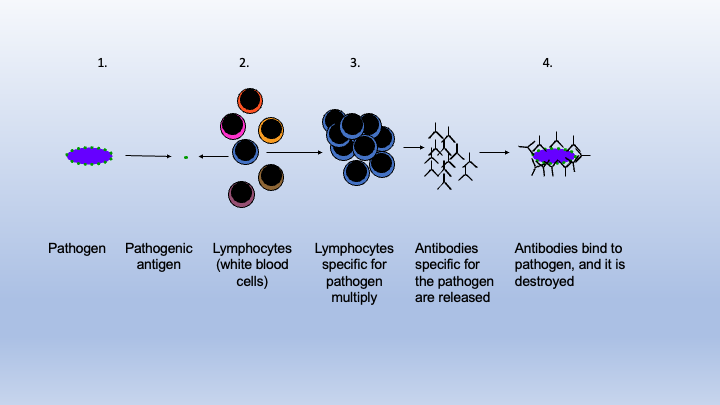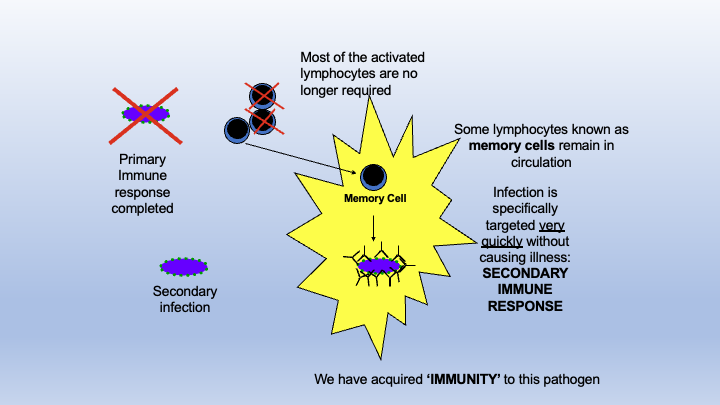Understanding the Immune Response
Our immune system is an incredible defence network that protects us against harmful pathogens. But how exactly does it respond when we’re exposed to an infectious agent — and how does that response lead to long-term immunity?
Let’s explore the primary and secondary immune responses — and why they’re so important when it comes to vaccinations.
Primary Immune Response
When you’re exposed to a pathogen for the first time, your immune system needs a moment to recognise it, prepare, and fight back:
- The pathogen enters your body.
- Lymphocytes (a type of white blood cell) detect the specific pathogen antigens on its surface.
- These lymphocytes multiply rapidly and begin to produce antibodies tailored to that pathogen.
- The antibodies bind to the pathogen, marking it for destruction by other immune cells.

It takes time — days, even — for the system to generate a full response. During this time, you’re likely to experience symptoms of illness, because your body hasn’t yet cleared the infection.
This is your primary immune response — slow, specific, but powerful.
Memory Cells & Immunity
Once the infection is cleared, most of the activated lymphocytes die off.
But not all of them.
Some stick around — these are memory cells. They remember the pathogen and stay in your circulation long after the infection is gone.
This sets the stage for… 👇
Secondary Immune Response
Next time that same pathogen shows up?
- Memory cells recognise it immediately.
- Antibodies are produced much faster.
- The infection is destroyed before you even feel sick.

This is the secondary immune response — and it’s what gives us immunity.
Why Vaccination Works
Vaccines use this exact principle. By exposing your immune system to a harmless version of the pathogen (or part of it), they:
- Trigger a primary response safely (no illness)
- Allow your body to develop memory cells
- Prepare you for a rapid, protective secondary response if you ever encounter the real thing
Vaccines don’t just protect individuals — they help protect communities.
Understanding how your body learns to defend itself is the first step to appreciating just how brilliant your immune system really is. And once you’ve got memory cells on your side, you’re not starting from scratch ever again.
🧬 Stay curious, Dr. Dot
